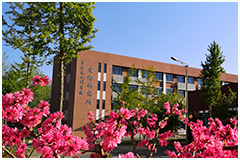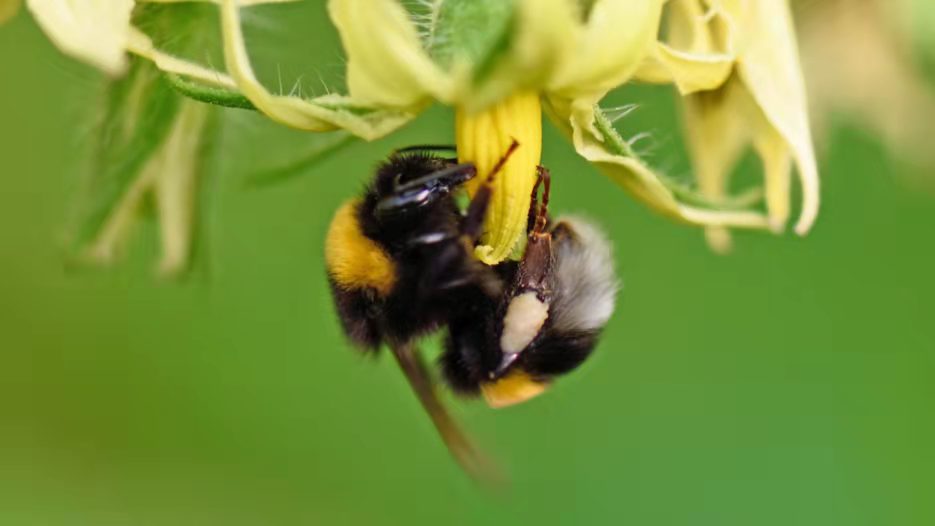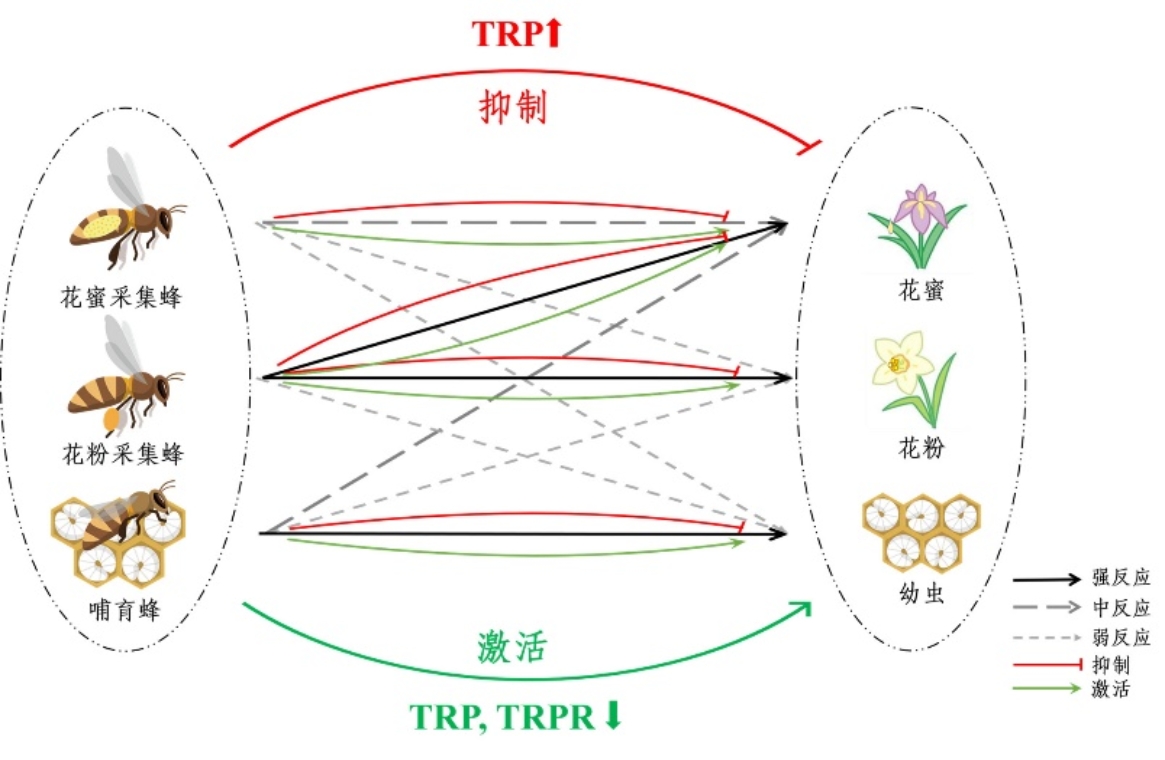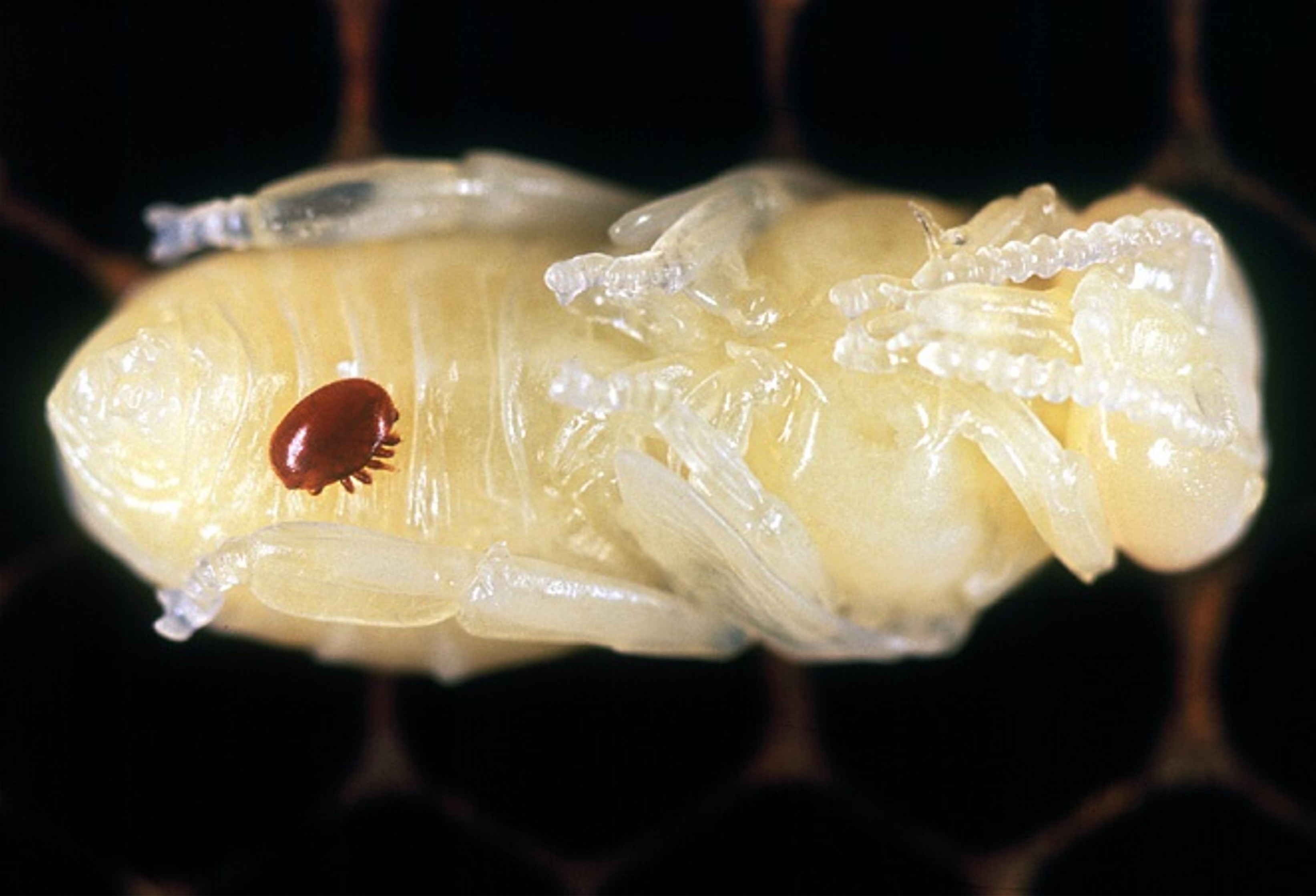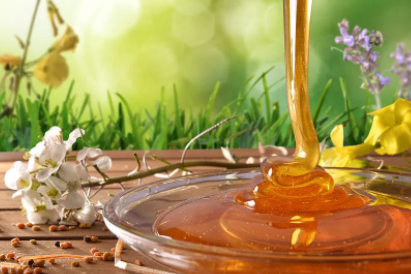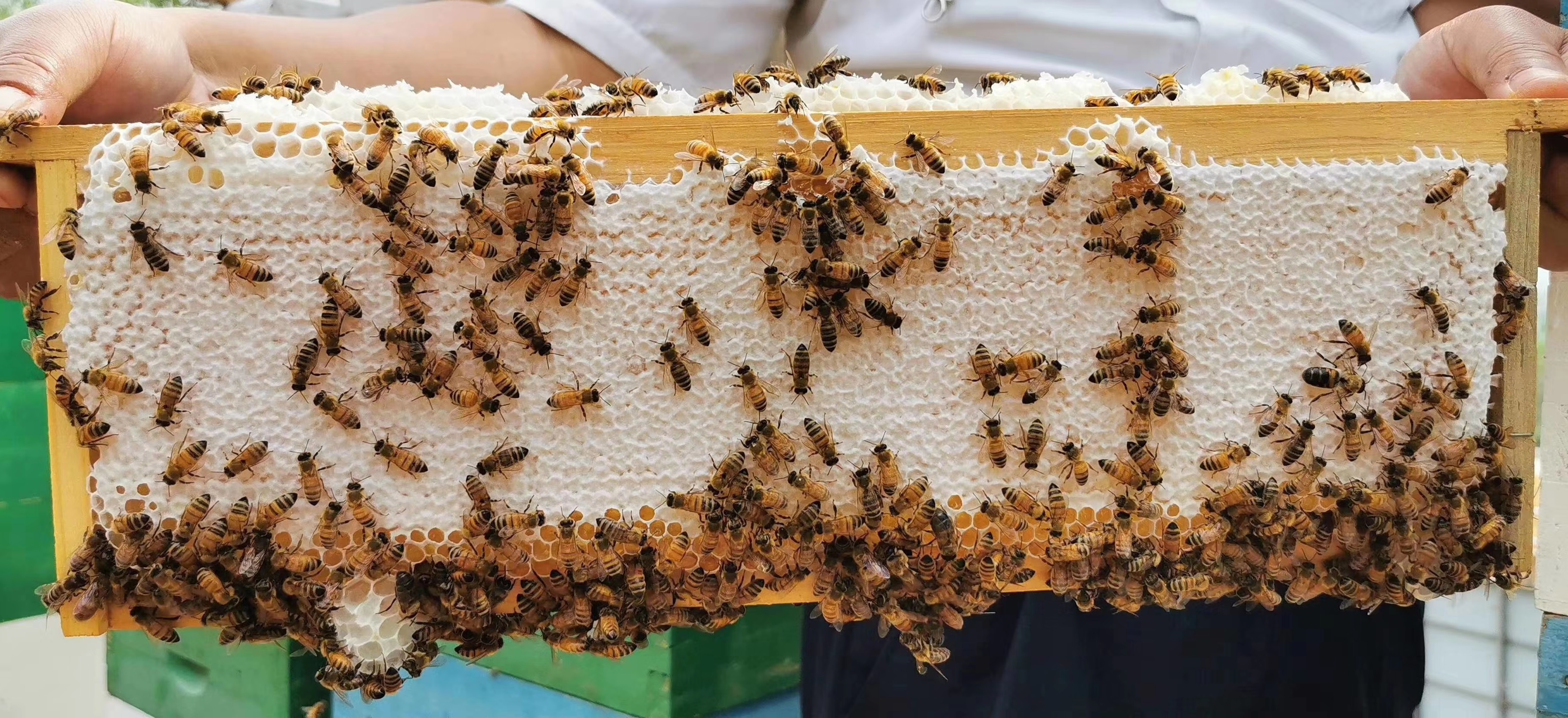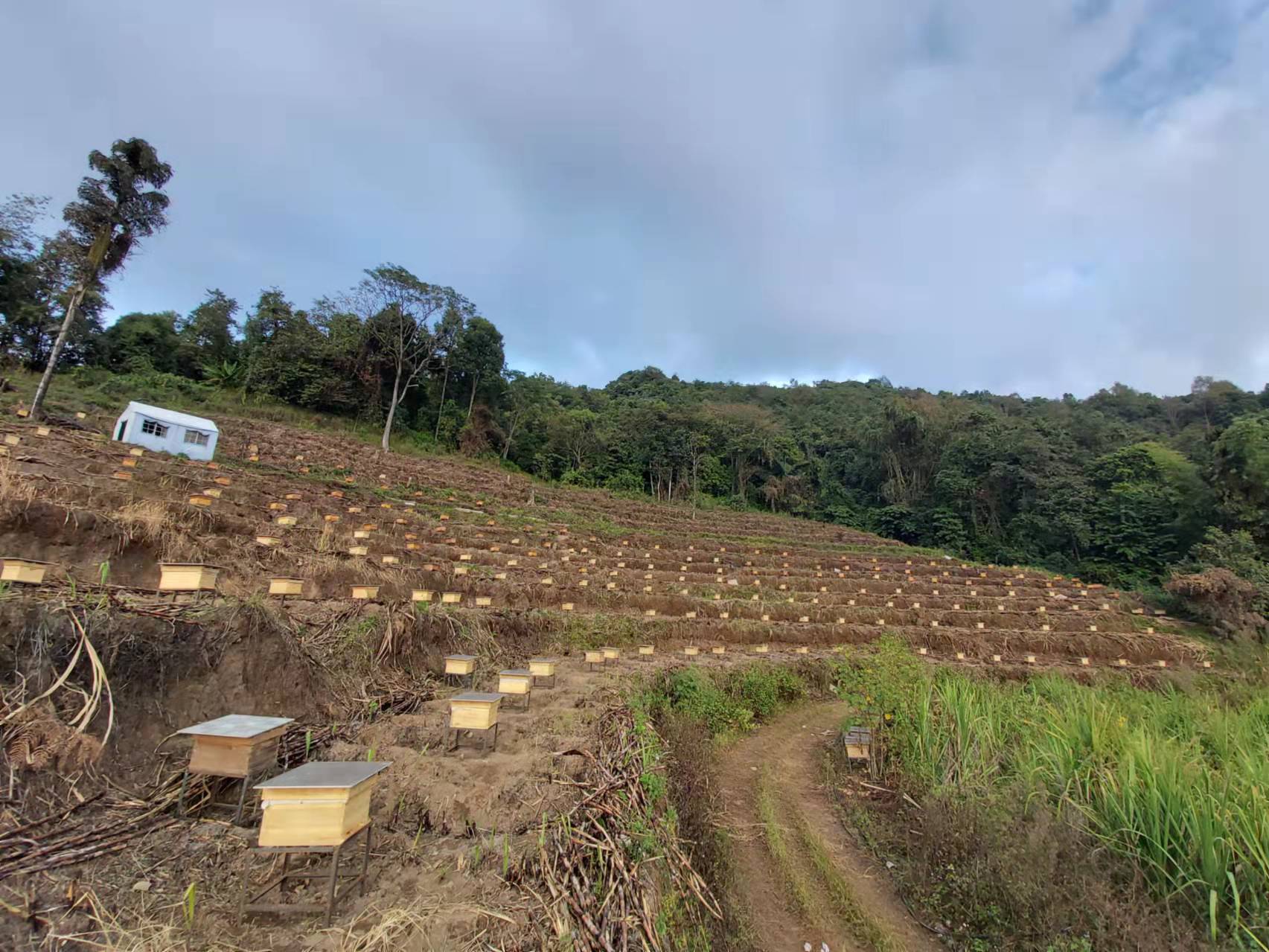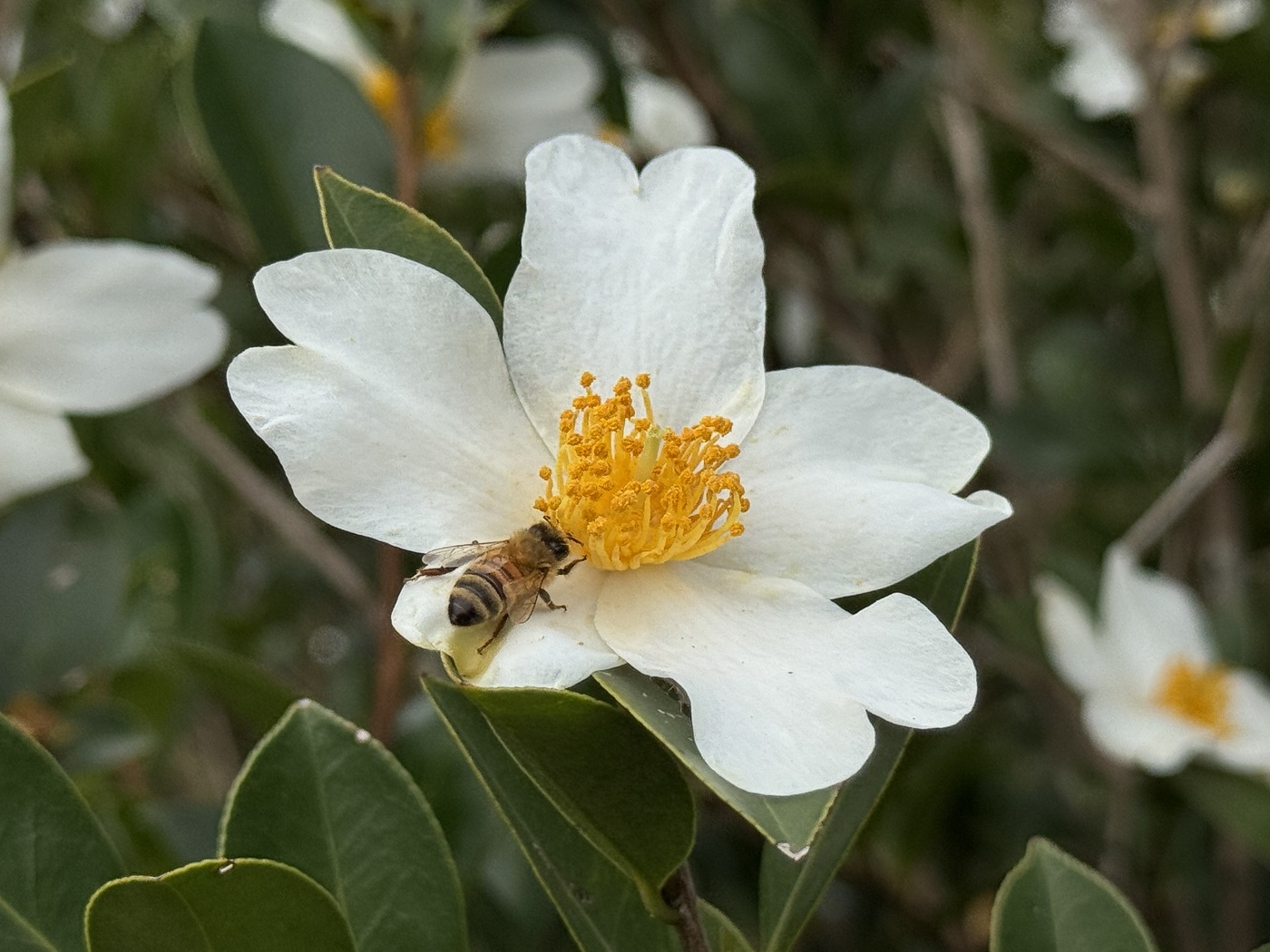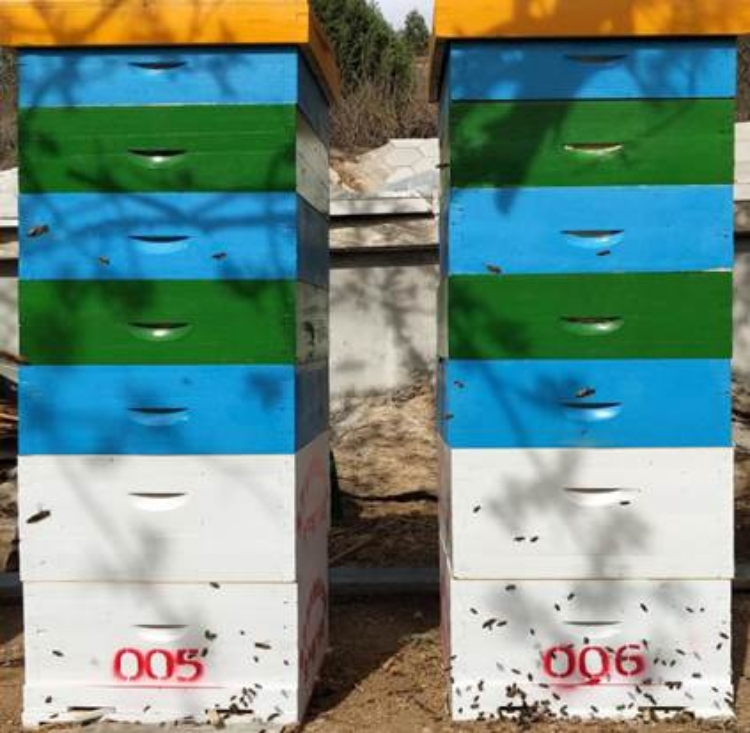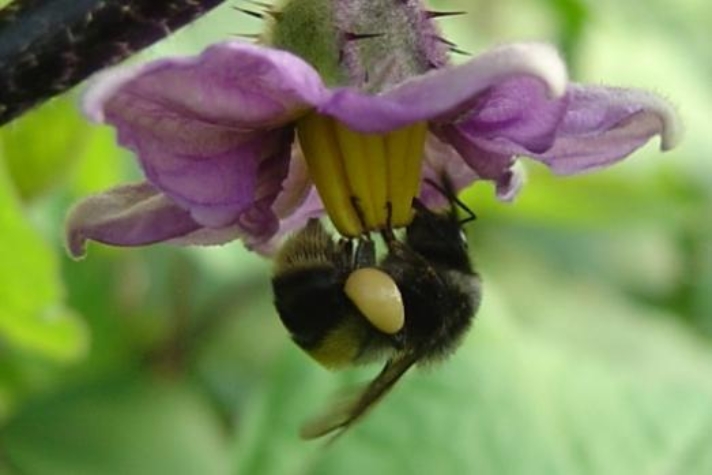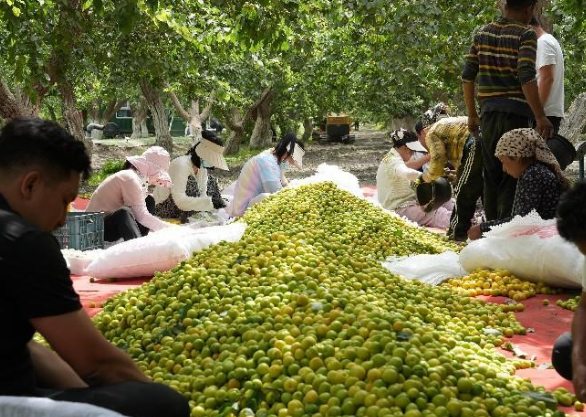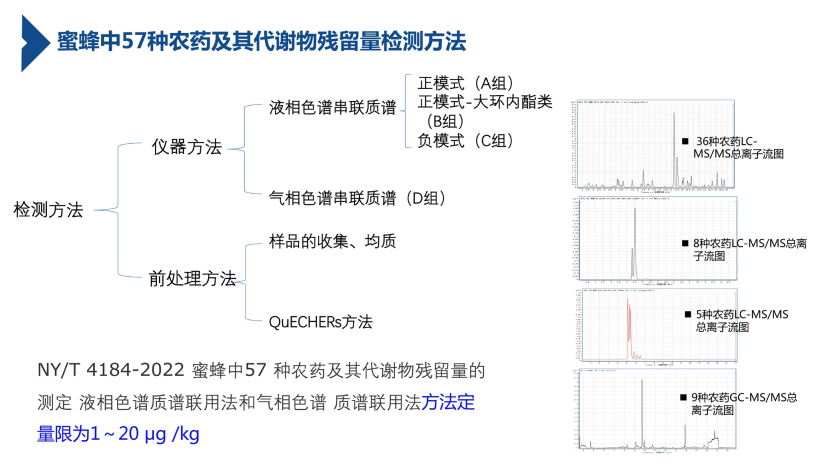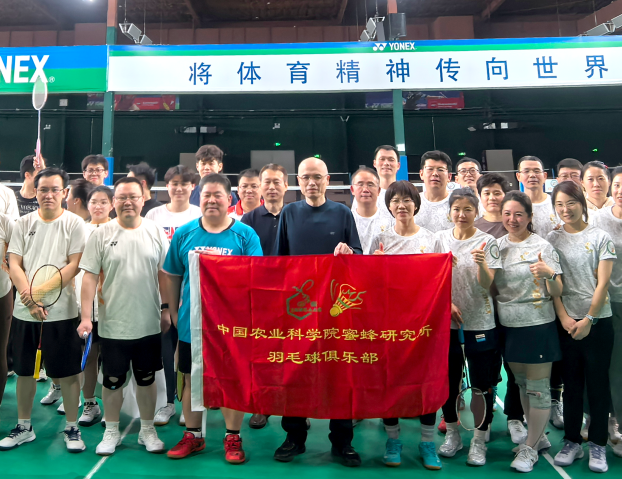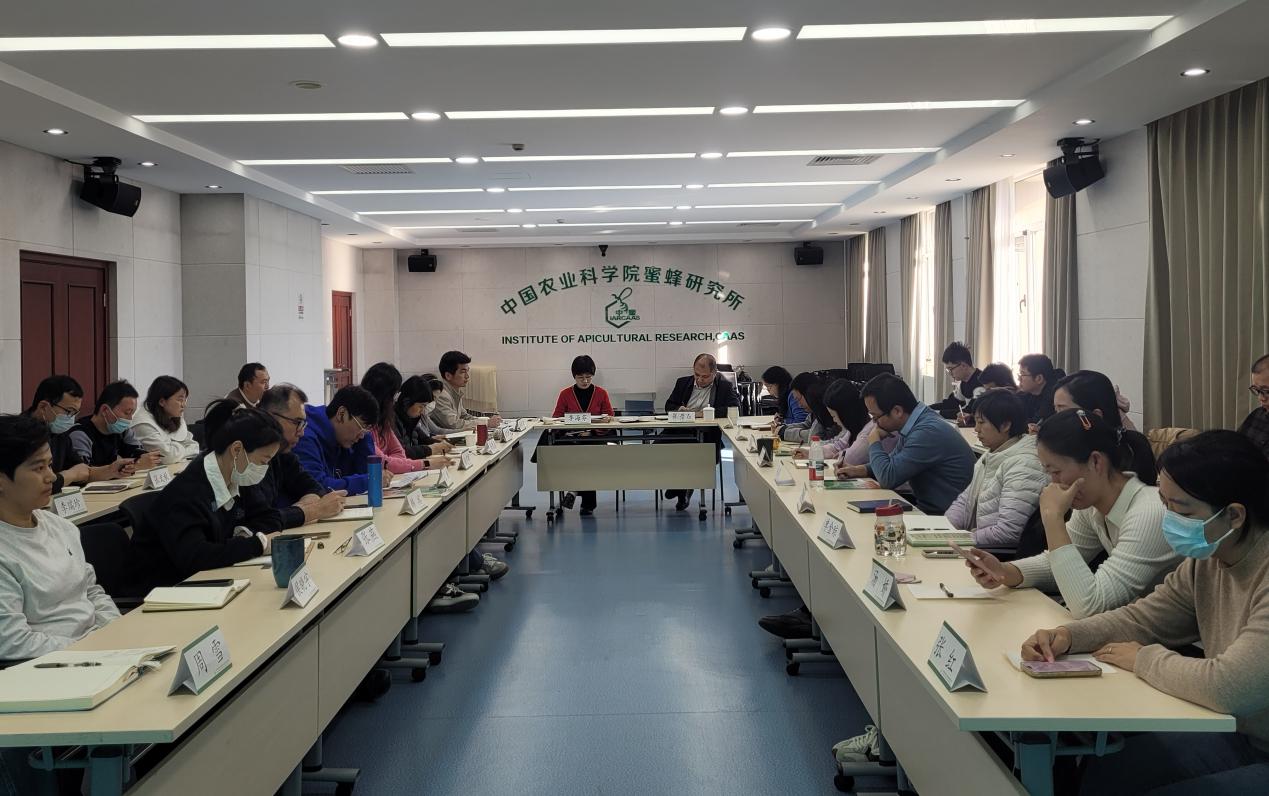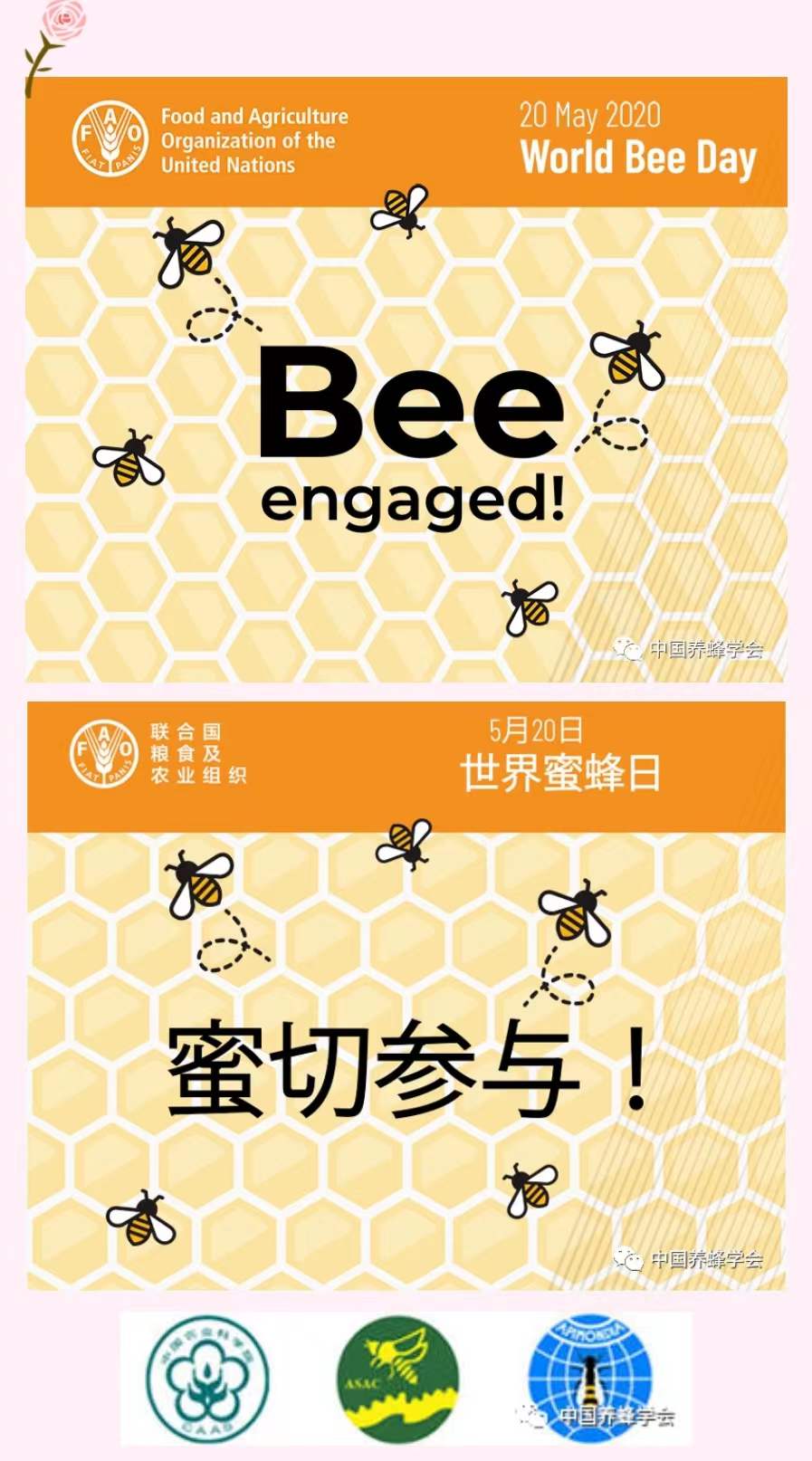
个人简介
王凯,1988年6月生,安徽芜湖人,博士,研究员,博士生导师,国家自然科学基金C1708养蜂学学科首位优秀青年科学基金获得者(2023年)、北京市科技新星(2022年),中国农业科学院农科英才-杰出青年英才。2016年博士毕业于浙江大学动物科学学院,2016年7月至今就职于中国农业科学院蜜蜂研究所,现为中国农业科学院蜜蜂研究所蜂产品质量与风险评估创新团队执行首席,主要研究方向为蜜蜂及蜂产品生物学。先后主持国家自然科学基金优秀青年科学基金、面上项目、青年基金、中央级公益性科研院所基本科研业务费专项等课题。近五年在国内外重要刊物上发表论文60余篇,其中近五年以第一/通讯作者发表SCI论文25篇,中文第一/通讯作者论文8篇,H指数42(Scopus),论文总被引次数超过5000次,连续五年入选斯坦福大学全球前2%顶尖科学家“年度影响力”榜单(2021-2025),2023年荣获“Prof. Vassya Bankova 青年科学家奖”。现为中国农村专业技术协会青年科技工作者工作委员会主任委员、中国养蜂学会常务理事、中国农学会特产分会常务委员,兼任Food Chemistry编辑(Editor)、BMC Complementary Medicine and Therapies、Journal of Food Biochemistry等7个SCI期刊编委(Editorial board members)、《中国蜂业》编委、《昆虫学报》青年编委。以第一发明人获国家发明专利授权10项(转让1项、技术许可1项)、独立译著1部(58万字)、副主编、参编著作3部。
Email: kaiwang628@gmail.com; wangkai@caas.cn
教育经历
2011-2016 浙江大学 动物科学学院 博士2015-2016 澳大利亚联邦科工组织 食品营养研究所 博士联合培养2007-2011 湖南农业大学 动物科学技术学院 学士
工作经历
2024 至今 中国农业科学院蜜蜂研究所 研究员
2019-2023 中国农业科学院蜜蜂研究所 副研究员
2016-2018 中国农业科学院蜜蜂研究所 助理研究员
学科及研究领域
畜牧学/特种经济动物饲养—养蜂学
食品科学与工程/食品安全与营养-蜂产品学
在研科研项目
1. 国家自然科学基金优秀青年科学基金项目,蜜蜂及蜂产品学,批准号32322079,200万元,2024.01- 2026.12,主持,在研
2. 国家自然科学基金面上项目,蜂胶通过肠道共生菌动态调控西方蜜蜂免疫反应作用研究,批准号32172791,58万元,2022.01- 2025.12,主持,在研
3. 北京市科技新星计划-创新新星,北京市科学技术委员会、中关村科技园区管理委员会,批准号:20220484101,40万元,2022.10-2025.10,主持,在研
4. 海南白沙黎族自治县揭榜挂帅项目,海南牙叉镇蚊子蜂优良种质资源保护及推广,100万元,2024.04-2026.04,主持,在研
5. 资源昆虫全国重点实验室基本科研任务,中国无刺蜂饲养技术体系建立及无刺蜂蜂产品高效应用,15万元,2025.01-2025.12,主持,在研
成果奖励
1. “Prof. Vassya Bankova 青年科学家奖”,2024.10。
2. 山东省高等学校科学技术奖,本科科学技术类一等奖(第三完成人),山东省教育厅,2016.12
国内外重要学术期刊任职情况
1. Food Chemistry,编辑,2024-至今
2. Frontiers in Nutrition,副主编,2021-至今
3. Frontiers in Veterinary Science,副主编,2022-至今
4. BMC Complementary Medicine and Therapies,编委,2019-至今
5. Nutrients,编委,2023-至今
6. PLoS One,编委,2022-至今
7. Journal of Food Biochemistry,编委,2022-至今
8. 中国蜂业,编委,2024-至今
9. 昆虫学报,青年编委,2023-至今
国内外学术组织任职情况
1. 中国农村专业技术协会青年科技工作者工作委员会,主任委员,2023年-2027年
2. 中国养蜂学会,常务理事,2023年-2027年
3. 中国农学会特产分会,常务委员,2023年-2027年
4. 中国营养学会营养与保健食品分会第五届委员会,委员,2021年-2025年
科研论文及著作
近五年代表性SCI论文(#第一作者,*通讯作者):
Zhu, J., Cheng, X., Naumovski, N., Hu, L.*, & Wang K* (2025). Epigenetic regulation by quercetin: a comprehensive review focused on its biological mechanisms. Critical Reviews in Food Science and Nutrition, 65(4), 627-646.
Xu, Y., Zheng, X., Tang, B., Yang, X., Vit, P., Popova, M., ... & Wang K* (2025). Mannitol: A novel chemical marker in stingless bee honey. Food Chemistry, 142967.
Zheng, X., Xu, Y., Huang, Y., Granato, D., de Oliveira, F. F., Vit, P., ... & Wang K* (2025). A focus on the Chinese stingless bee honey (Hymenoptera, Apidae, Meliponini): Exploring physicochemical parameters for establishing quality standards. Journal of Food Composition and Analysis, 137, 106823.
Li, T., Zhu, J., Yu, Q., Zhu, Y., Wu, C., Zheng, X., . . ., Wang K*, Hu, L*. (2024). Dietary Flavonoid Quercetin Supplement Promotes Antiviral Innate Responses Against Vesicular Stomatitis Virus Infection by Reshaping the Bacteriome and Host Metabolome in Mice. Molecular nutrition & food research, 68(11), 2300898
El-Seedi, H. R., Salama, S., El-Wahed, A. A. A., Guo, Z., Di Minno, A., Daglia, M., . . . Wang K*. (2024). Exploring the Therapeutic Potential of Royal Jelly in Metabolic Disorders and Gastrointestinal Diseases. Nutrients, 16(3), 393.
Zheng X#, Pan F#, Naumovski N, Wei Y, Wu L, Peng W*, Wang K* (2023) Precise prediction of metabolites patterns using machine learning approaches in distinguishing honey and sugar diets fed to mice. Food Chem 430: 136915
Baky MH#, Abouelela MB, Wang K*, Farag MA*(2023) Bee Pollen and Bread as a Super-Food: A Comparative Review of Their Metabolome Composition and Quality Assessment in the Context of Best Recovery Conditions. Molecules 28
Zheng X#, Al Naggar Y#, Wu Y, Liu D, Hu Y, Wang K*, Jin X*, Peng W* (2023) Untargeted metabolomics description of propolis's in vitro antibacterial mechanisms against Clostridium perfringens. Food Chem 406: 135061
Algethami JS#, El-Wahed AAA, Elashal MH, Ahmed HR, Elshafiey EH, Omar EM, Naggar YA, Algethami AF, Shou Q, Alsharif SM, Xu B, Shehata AA, Guo Z, Khalifa SAM, Wang K*, El-Seedi HR* (2022) Bee Pollen: Clinical Trials and Patent Applications. Nutrients 14
El-Seedi HR#,*, Ahmed HR, El-Wahed AAA, Saeed A, Algethami AF, Attia NF, Guo Z, Musharraf SG, Khatib A, Alsharif SM, Naggar YA, Khalifa SAM, Wang K* (2022) Bee Stressors from an Immunological Perspective and Strategies to Improve Bee Health. Veterinary Sciences 9
El-Seedi HR#,*, Eid N, Abd El-Wahed AA, Rateb ME, Afifi HS, Algethami AF, Zhao C, Al Naggar Y, Alsharif SM, Tahir HE, Xu BJ, Wang K*, Khalifa SAM (2022) Honey Bee Products: Preclinical and Clinical Studies of Their Anti-inflammatory and Immunomodulatory Properties. Front Nutr 8
Jiang Q#, Charoensiddhi S, Xue X, Sun B, Liu Y, El-Seedi HR, Wang K* (2022) A review on the gastrointestinal protective effects of tropical fruit polyphenols. Crit Rev Food Sci Nutr: 1-27
Li Q#, Chen G, Zhu D, Zhang W, Qi S, Xue X, Wang K*, Wu L (2022) Effects of dietary phosphatidylcholine and sphingomyelin on DSS-induced colitis by regulating metabolism and gut microbiota in mice. The Journal of Nutritional Biochemistry 105: 109004
Qi S#, Al Naggar Y#, Li J, Liu Z, Xue X, Wu L, El-Seedi HR, Wang K* (2022) Acaricide flumethrin-induced sublethal risks in honeybees are associated with gut symbiotic bacterium Gilliamella apicola through microbe-host metabolic interactions. Chemosphere 307: 136030
Yan S#, Wang K*, Al Naggar Y, Vander Heyden Y, Zhao L, Wu L, Xue X (2022) Natural plant toxins in honey: An ignored threat to human health. Journal of Hazardous Materials 424: 127682
Zhang W#, Margarita GE, Wu D, Yuan W, Yan S, Qi S, Xue X, Wang K*, Wu L* (2022) Antibacterial Activity of Chinese Red Propolis against Staphylococcus aureus and MRSA. Molecules 27
Zheng X#, Zhao Y#, Naumovski N, Zhao W, Yang G, Xue X, Wu L, Granato D*, Peng W*, Wang K* (2022) Systems Biology Approaches for Understanding Metabolic Differences Using 'Multi-Omics' Profiling of Metabolites in Mice Fed with Honey and Mixed Sugars. Nutrients 14: 3445
Zhao L#, Ren C#, Xue X, Lu H, Wang K*, Wu L* (2022) Safflomin A: A novel chemical marker for Carthamus tinctorius L. (Safflower) monofloral honey. Food Chemistry 366: 130584
Wang K#, Li J, Zhao L, Mu X, Wang C, Wang M, Xue X, Qi S*, Wu L* (2021) Gut microbiota protects honey bees (Apis mellifera L.) against polystyrene microplastics exposure risks. Journal of Hazardous Materials 402: 123828
Zhang WW#, Qi SZ, Xue XF, Al Naggar Y, Wu LM*, Wang K* (2021) Understanding the Gastrointestinal Protective Effects of Polyphenols using Foodomics-Based Approaches. Frontiers in Immunology 12 (IF= 7.561)
El Kholy S#, Wang K*, El-Seedi HR, Al Naggar Y* (2021) Dopamine Modulates Drosophila Gut Physiology, Providing New Insights for Future Gastrointestinal Pharmacotherapy. Biology-Basel 10 5.079
Abd El-Wahed AA#, Khalifa SAM, Elashal MH, Musharraf SG, Saeed A, Khatib A, Tahir HE, Zou XB, Al Naggar Y, Mehmood A, Wang K*, El-Seedi HR* (2021) Cosmetic Applications of Bee Venom. Toxins 13
Guo N#, Zhao L#, Zhao Y, Li Q, Xue X, Wu L, Gomez Escalada M, Wang K*, Peng W* (2020) Comparison of the Chemical Composition and Biological Activity of Mature and Immature Honey: An HPLC/QTOF/MS-Based Metabolomic Approach. Journal of Agricultural and Food Chemistry 68: 4062-4071
Li Q#, Liang X, Xue X, Wang K*, Wu L* (2020) Lipidomics Provides Novel Insights into Understanding the Bee Pollen Lipids Transepithelial Transport and Metabolism in Human Intestinal Cells. Journal of Agricultural and Food Chemistry 63: 907-917
Sun L-P#, Shi F-F, Zhang W-W, Zhang Z-H, Wang K* (2020) Antioxidant and Anti-Inflammatory Activities of Safflower (Carthamus tinctorius L.) Honey Extract. Foods 9: 1039
近五年代表性中文论文(*通讯作者):
王凯,周瑞琪,达娃,等.引进意大利蜜蜂对雅鲁藏布大峡谷国家级自然保护区中华蜜蜂和生态平衡的影响及保护对策[J/OL].昆虫学报,1-11[2025-03-12].
袁文芹,玄红专,王凯*.蜂蜜中抗菌活性物质及其抑菌作用机理研究进展[J].食品工业科技,2023,44(04):438-446.
郑星,王凯*,薛晓锋,汪正威,潘鹏,吴黎明,赵亚周,彭文君*.高效液相色谱-示差折光检测法检测无刺蜂蜂蜜中海藻酮糖含量[J].食品科学,2022,43(16):217-225.
宋美洁,欧爱群,薛晓锋,吴黎明,寿旗扬,王凯*.蜂胶提取物对脂多糖诱导小鼠急性乳腺炎及乳腺屏障功能的保护作用[J].中国农业科学,2021,54(12):2675-2688.
郑星,梁馨文,吴黎明,薛晓锋,汪正威,王凯*,彭文君.无刺蜂蜂蜜研究进展[J].食品工业科技,2022,43(01):458-465.
任彩君,吴黎明,王凯*.膳食多酚对肠道菌群影响研究进展[J]. 食品工业科技,2022,43(01):400-409.
郭娜娜,赵亚周,王凯*,彭文君*.蜂蜜对创伤愈合的作用及机理研究进展[J].中国农业科技导报,2021,23(02):123-133.
欧爱群,赵必安,李江红,王凯*,彭文君.蜂胶防治奶牛乳腺炎研究进展[J].畜牧与兽医,2020,52(03):145-150.
常化松,袁雯雯,玄红专,王凯*.黄酮类化合物吸收代谢及其对胃肠道功能影响的研究进展[J].食品工业科技,2019,40(18):340-347.
王蓓,常化松,苏松坤,孙丽萍,王凯*.无刺蜂蜂胶乙醇提取物的体外抗氧化及抗炎活性[J].中国农业科学,2019,52(05):939-948.
学术著作
神奇的无刺蜂 / (瑞士) 克里斯托弗·格鲁特著;王凯译著. --北京:中国农业科学技术出版社,2022.12,ISBN 978-7-5116-6059-6
高效健康养蜂全程实操图解/张中印,吴黎明主编.北京:中国农业出版社,2018.07(副主编)
蜂胶研究/胡福良等著.杭州:浙江大学出版社,2019.05(参编,第七章)
授权发明专利
一种无刺蜂蜂蜜提取物及其提取方法和应用, ZL201810750208.3,王凯,吴黎明,梁馨文,薛晓锋,2019年
无刺蜂蜂蜜多酚物质的提取及其在免疫调节中的应用,ZL201710696882.3,王凯,梁馨文,王亮,吴黎明,薛晓锋,2019年(已授权技术许可)
一种鉴别蜂花粉来源的方法,ZL201810565236.8,王凯,李强强,吴黎明,薛晓锋,2020年
一种快速分析蜂花粉中脂类成分的方法,ZL201710415148.5,王凯,李强强,吴黎明,薛晓锋,2020年 (已转让)
一种宠物用牙膏及其制备方法,ZL201710675356.9,王凯,吴黎明,薛晓锋,2020年
一种夏枯草蜂蜜的鉴别方法,ZL201810643017.7,王凯,吴黎明,梁馨文,薛晓锋,2021年
一种成熟油菜蜂蜜的鉴别方法,ZL20201017745.2Z,王凯,吴黎明,彭文君,赵柳微,郭娜娜,薛晓锋,2022年
一种宠物护爪膏及其制备方法与应用,ZL202010941083.X,王凯,吴黎明,薛晓锋,2022年
一种红花蜂蜜及含有红花蜂蜜的制品的检测方法,ZL201911203963.0,王凯,赵柳微,郭娜娜,薛晓锋,吴黎明,2022年
一种测底肠道内容物或粪便中的短链脂肪酸含量的方法,ZL202311746042.5,王凯,郑星,熊霞,吴黎明,彭文君,2024年
更新时间:2025-03-05
Curriculum Vitae
Kai Wang, Ph.D., Professor
Research Scientist of Institute of Apicultural Research, Chinese Academy of Agricultural Sciences, Beijing, China.
Email: kaiwang628@gmail.com; wangkai@caas.cn
ORCID: 0000-0003-0553-5293
Scopus ID: 57203735794
Dr. Kai Wang is currently a full professor from Institute of Apicultural Research, Chinese Academy of Agricultural Science, China. He earned his PhD in Agriculture (2016) from the Zhejiang University (China) studying the effects of bee propolis on inflammatory diseases and inflammatory microenvironment under the supervision of Professor Fuliang Hu. During his PhD studies (2015-16), he was sponsored by the China Scholarship Council (CSC) to conduct joint training at the Commonwealth Scientific and Industrial Research Organisation, CSIRO, in Australia, under the mentorships of Professor David Topping (Chief Research Scientist of CSIRO, FTSE, FNSA, MAIFST) and Dr. Michael Conlon (Senior Research Scientist of CSIRO). Dr Wang joined Institute of Apicultural Research, Chinese Academy of Agricultural science 2016. He was named an NSFC Excellent Young Scientist in 2023 and a recipient of the Beijing Nova Program in 2022, making him the only one in the discipline of Apiculture Sciences in China.
His research major focused on “honey bees and bee products”, research interests include:
1. Exploring the mechanism of honey bee subhealth risk factors on honey bee production, and proposing the method of regulating bee colony immunity for prevention and control on diseases.
2. Analyzing the honey ripening mechanism of honey bees and establishing the identification on different monofloral honeys.
3. Revealing the regulatory mechanism of propolis on the intestinal inflammatory microenvironment and elucidating the material basis in the bee propolis.
Dr Wang has published over 105 peer-reviewed publications in top journals with an H index of 46 (total citations= 6636, Google Scholar) and 42 (total citations = 5382, Scopus), 3 book chapters and 4 books. He was featured among the World's Top 2% Scientists List created by Stanford University (2021-2025). He was also invited to be reviewers for more than 50 WoS-indexed journals and completed 172 peer reviews.
He also acted as editors for several different journals, like Food Chemistry, BMC Complementary Medicine and Therapies, Journal of Food Biochemistry, Nutrients and PLoS One.
Updated on: 2025-03-05
